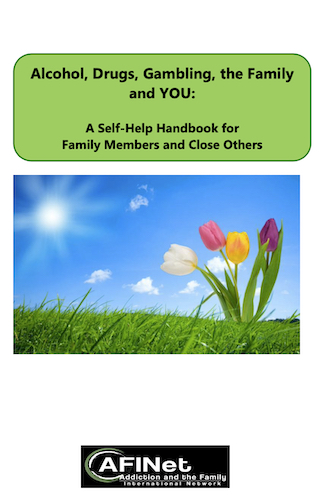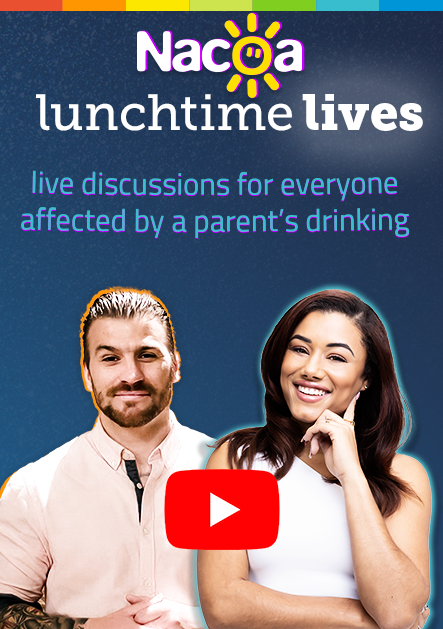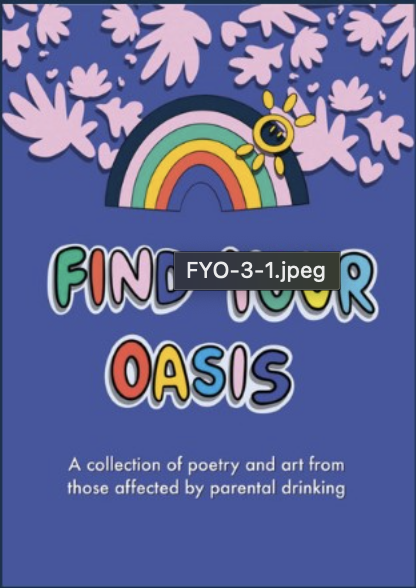Help and advice for adults whose parents drink too much
Alcohol problems are like an illness and can affect people of all ages and from all walks of life. People with a drink problem have lost control over their drinking and usually need help to stop. As hard as it is for those around them, only the person drinking can make the decision to accept help. However, you can feel better whether your parent continues to drink or not.
The effects of parental alcohol misuse don’t just disappear once children reach 18 or move away from home. Problems often continue into, and sometimes only become apparent in, adulthood. Millions of adults in the UK are still being affected by their parents’ drinking or the knock-on effects of growing up in a home where alcohol was a problem. A child of an alcoholic can be 1 or 101 – it doesn’t change the fact that your parent, step-parent or carer is, or has been, dependent on alcohol, along with the problems this brings.
People affected by parental alcohol problems often share similar feelings. Some talk about:
- feeling different from other people
- difficulty making and maintaining intimate relationships
- fearing rejection and abandonment, yet rejecting others
- being loyal even when loyalty is undeserved
- finding it difficult to have fun
- judging themselves without mercy
- fearing failure, but sabotaging success
- overreacting to changes over which they have no control
- lying when it would be just as easy to tell the truth
- guessing at what ‘normal’ is
These issues can continue whether the parent is still drinking or not. If you are an adult who has at some point been affected by your parents’ drinking, we hope this page will help. You are not alone.
What you can do
Find out more about alcohol and the effects on the family
Understanding how alcohol affects the person drinking and everyone else in the family can help you to be in the best position to support someone who has, or has had, an alcohol problem, and most importantly to look after yourself.
To find out more, see Information. You can also look at questions other people have asked in FAQs.
Remember you are not responsible for other people’s drinking
You can’t control someone else’s drinking or behaviour. Pouring away, watering down, or hiding alcohol may make things worse, and the person may become angry, aggressive or secretive. Your parent’s drinking is not, and never was, your fault.
Remember the Six “C”s
I didn’t cause it
I can’t control it
I can’t cure it
I can take care of myself
I can communicate my feelings
I can make healthy choices
Remember alcohol affects the brain
As a result of drinking people can experience memory blackouts, this means they don’t remember things they have done when drunk. Try not to argue with someone when they are drinking; it may make things worse. The person drinking may say things that they normally wouldn’t, and will often not remember the conversation afterwards.
Be ready with information
Although you can’t make someone stop drinking, you can be ready with details of possible sources of help, if and when they ask for it. Nacoa can research local support in your area. It can be comforting to know what help is out there. For information on where people can get help for their drinking, when they are ready and willing, see Help for People with Alcohol Problems.
Be realistic
When someone has a drink problem, alcohol often becomes their main priority. Promises are often made that are not upheld. This can be very difficult for everyone, and feelings of being let down are common. The person can only stop drinking when they are ready. If you want to try talking to the person about their drinking and its effect on you, read our Talking to Someone About Their Drinking sheet for some ideas on how to broach the subject. It is important to look after yourself first and sometimes this may mean distancing yourself from the drinker.
Ways to feel better
Confide in someone
Talk about how you are feeling to a friend, relative, colleague or Nacoa. This is not being disloyal to your family and it can make you feel less alone. Sharing your feelings can help you feel better. At Nacoa we understand what it can be like to be affected by a parent’s drink problem. We will listen and we won’t judge; you can trust us.
Make time for yourself
You are important too. Find time for things that interest you, whether it’s sport or hobbies, going for a walk, reading a book or watching TV, even just taking a bath or having some quiet time with a cup of tea. Sometimes worries can take over, and taking a break, even if just for a short while, can help you to de-stress, and bring some perspective back into your life.
Understand that your feelings are normal
It’s OK to hate the problems that alcohol can cause, yet love the person who is drinking. Alcohol problems in the family can result in a lot of complicated, confusing and upsetting feelings. Talking and writing about your feelings can help you make sense of them. Some people like to keep a daily journal, write poems, or draw and paint. Sometimes people find it helpful to write a letter to their parent(s) explaining how they felt as children and feel now – a way to externalise experiences and emotional pain. Some people write with no intention of sending the letter even if the parent is still alive.
Read people’s experiences
Hearing about the experiences of other people often helps to make sense of our own feelings and helps us to feel less isolated and alone. Although every family is unique, there are many similarities in how alcohol problems affect the family. To read other people’s experiences click here.
Read about the problem
For books and other resources that may be helpful when a parent has, or has had, a drink problem click here.
Contact Nacoa
At Nacoa, we understand what it can be like when a parent has, or has had, an alcohol problem. Our helpline is free, confidential and without time limits. Our volunteer helpline counsellors won’t judge and are here to help. Sometimes just talking or writing to someone anonymously about how you are feeling can help ease the burden. For more information about contacting the helpline click here.
Meet others with the same problem
There are places that you can go to meet other people in similar circumstances. Nacoa is always happy to research sources of support in your area. Two such groups are Al-Anon Family Groups and Adult Children of Alcoholics (ACA) – contact details below. Here you can learn coping strategies by drawing from others’ experiences. This can help you come to terms with the effects of growing up with alcoholism in the family and find ways to feel better as an adult, whether your parent is still drinking or not.
Access counselling services
Some people find it helpful to explore how growing up with parental alcoholism has affected them through professional counselling. If you think this might help, you could talk to your doctor who may be able to refer you for counselling. You can also search for a local counsellor at the British Association for Counselling & Psychotherapy (BACP). For information before accessing counselling read our leaflet Information About Counselling and Psychotherapy.
Coping with death of a parent
Sadly, alcohol problems can be fatal. If you have lost a parent to alcohol addiction you may also find it helpful to read our Coping with the Death of a Parent booklet.
Support for adults whose parents drink too much
Some national organisations offering support to family members affected by addiction are listed below. You can also contact Nacoa and we will happily research services local to you and other national organisations that may be helpful.
Adult Children of Alcoholics (ACA)
Helpline: 01590 610 936
Support for people who have grown up in alcoholic or otherwise dysfunctional families, through local meetings and literature.
Helpline: 0800 0086 811
Providing support to anyone whose life is, or has been, affected by someone else’s drinking.
NAPAC (National Association for People Abused in Childhood)
Support Line: 0800 085 3330
Support and information for people abused in childhood by phone, email, letter and booklets.


















